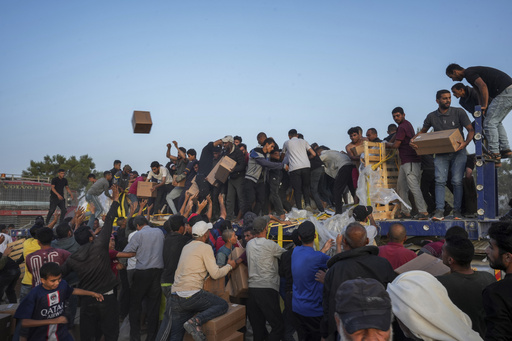The United Nations’ independent investigator overseeing the right to food has accused Israel of implementing a “starvation campaign” against Palestinians in Gaza during the recent conflict, a claim Israel strongly refutes. The investigator, Michael Fakhri, alleged that following Hamas’ attack in southern Israel, Israel’s military response involved blocking essential supplies like food, water, and fuel from entering Gaza, resulting in a dire humanitarian situation. Israeli Prime Minister Benjamin Netanyahu dismissed the accusations as baseless during a press conference, labeling them as “outrageously false.”
Under mounting international pressure, particularly from the United States, Israel gradually began to open some border crossings for controlled aid deliveries. However, Fakhri noted that initially, aid primarily reached southern and central Gaza, not the northern areas as directed by Israel. Fakhri, a law professor at the University of Oregon, was appointed as the U.N. investigator on the right to food by the Human Rights Council in 2020.
In his report to the U.N. General Assembly, Fakhri highlighted that by December, 80% of Gaza’s population faced severe food scarcity, describing it as an unprecedented level of hunger post-war. He accused Israel of using hunger and starvation tactics against Palestinians for over seven decades, perfecting methods to control, inflict suffering, and cause deaths through the manipulation of food systems.
Israel refuted these claims, stating that they no longer restrict the number of aid trucks entering Gaza, including food shipments. Netanyahu cited data from COGAT, Israel’s military aid oversight body, indicating that 700,000 tons of food items had entered Gaza since the conflict began almost a year ago. Despite this, many Palestinians in Gaza struggle to afford an adequate amount of food for their families.
The U.N. has described the humanitarian situation in Gaza as “beyond catastrophic,” with over a million Palestinians not receiving food rations in August and a significant decrease in cooked meals distributed daily. Shortages of supplies in Gaza are attributed to hostilities, damaged infrastructure, access limitations imposed by Israel, and ongoing insecurity in the region.


